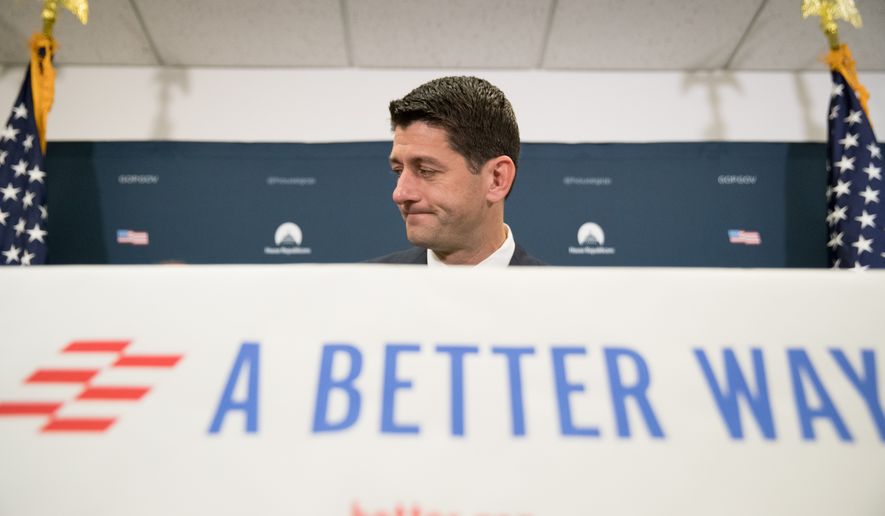OPINION:
It appears a federal government shutdown will be avoided, as leaders in the House of Representatives struck a deal to give $170 million to help fix the lead-tainted water system in Flint, Michigan.
What a politicized mess.
Washington, D.C., had a drinking water crisis in 2004 that was 20 to 30 times larger than Flint’s with more lead poisoning and exposure. There was, however, no federal aid or national publicity.
“Forty-two-thousand children had lead poisoning back in the early 2000’s and we are still dealing with high levels of lead,” Washington’s local CBS News affiliate reported in April.
“Kids in D.C. that got hurt and have special needs, their families that are paying these extraordinary educational bills, they got nothing because the federal government covered this problem up completely,” Virginia Tech environmental engineer Marc Edwards told WTOP, a local radio station, the same month.
The city experienced the high-levels of lead after its water supplier, the Washington Aqueduct, changed its chemical treatment from chorine to chloramine. The chloramine caused the city’s pipes to corrode, allowing lead to seep from the city’s older pipes into the water supply.
Then, as Mr. Edwards hinted, there was a coverup.
Officials from the water supplier didn’t issue warnings to the public once they realized lead levels were unsafe, despite federal law requiring it to do so. After a Washington Post investigation, records show the water utility knew for three years some houses had high-levels of contamination — but kept that information secret — and withheld six high test results from federal regulators.
Moreover, the U.S. Centers for Disease Control and Prevention came to the city and wrote a falsified report that claimed “not a single man, woman or child in D.C. had any evidence any of them had their blood lead elevated above CDC’s level of concern,” Mr. Edwards told WTOP. “In other words, as one paper said, this was much ado about nothing.”
Yet — when this was discovered — there was no public outrage. No federal dollars to replace Washington’s water pipes, or help the community deal with the public health exposure. I bet, for many readers, this is the first time you’re reading about it.
For exposing a crisis in Washington, D.C., isn’t politically expedient for federal politicians — it’s three electoral votes pale in comparison to Michigan’s 16. Not to mention, it couldn’t be blamed on a Republican. The city has been ruled by a democratic mayor since it started electing them in 1975, and there’s no one higher on the political totem pole, given its lack of statehood.
And let’s get this straight: It’s just because of that — there were no Republicans to scapegoat and Washington’s lack of electoral votes — that Democrats didn’t make what happened there a national crisis. Because, Washington, just like Flint, has a large black population, many who live in poverty and were directly impacted by its water crisis.
If Democrats truly cared about the plight of blacks, they would’ve pushed forward a bill in 2004 that would’ve given aid to the city where they preside. The crisis, was in fact, larger and impacted more than in Flint.
So when Democrats say things like Republican leaders are refusing to approve emergency aid in Flint because the majority of the city’s residents are black — like Rep. Dan Kildee said in a speech on the House floor yesterday — my blood boils.
Do it, or you’re racist, is what he’s saying. And in a year of presidential politics, isn’t that so convenient.
What happened in Flint, Michigan, is a crisis — one that the state, and humanitarian aide can help fix. Officials in Washington, D.C., actually found replacing the city’s pipe’s were not the best solution (it was their first) but rather adding the chemical orthoposphate, which changes the inside of the pipe from lead to an oxide of lead, but is resistant to leaching.
But probably none of this is being considered as part of the federal bill. If we just slap $170 million on the problem, we’ve solved it, Democratic lawmakers think. And not only that, but we’ve won politically — we’re the party that cares!
In the end, what choice did House Speaker Paul Ryan have but to cave?
Stubbornly, I wish he held firm.




Please read our comment policy before commenting.